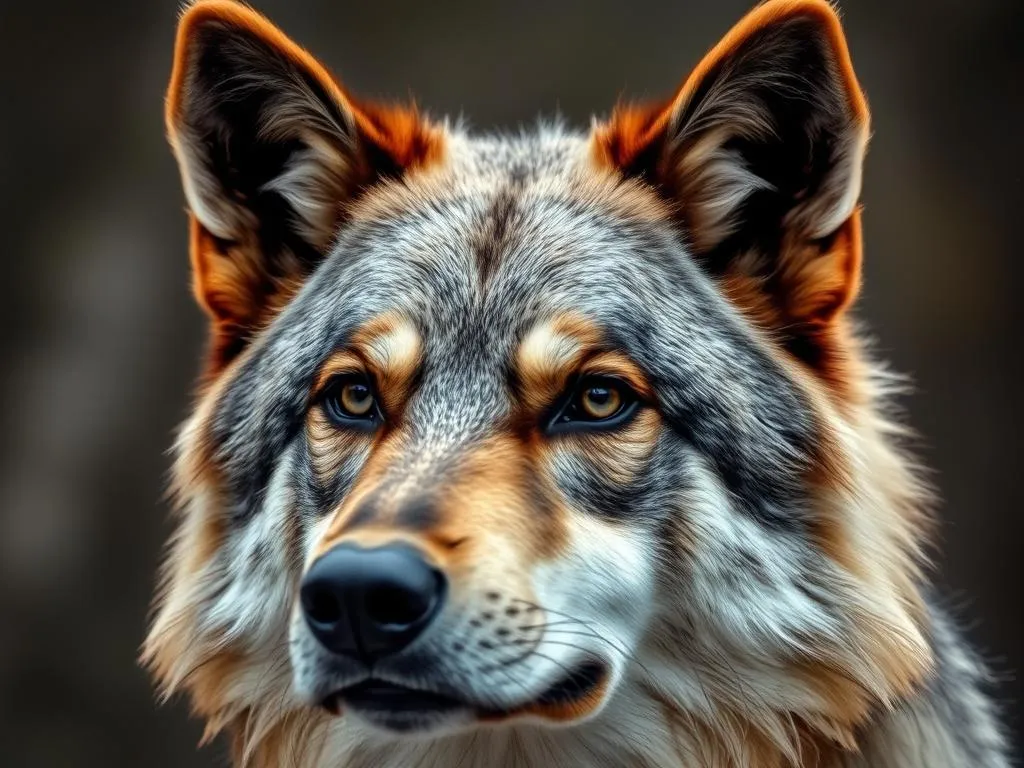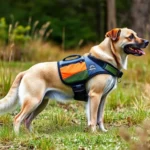
Wolf dogs have become an intriguing topic among pet enthusiasts and animal lovers alike. But what exactly is a wolf dog? At its core, a wolf dog is a hybrid resulting from the crossbreeding of a domestic dog (Canis lupus familiaris) and a wolf (Canis lupus). This unique lineage has sparked a surge of interest as people seek to understand their characteristics, care requirements, and the legality of owning such animals.
As the fascination with wolf dogs grows, so does the need for comprehensive information regarding their traits, behavior, and responsible ownership. This article delves deep into the world of wolf dogs, providing insights into their characteristics, care needs, legal considerations, and more.
Understanding Wolf Dogs
Definition of Wolf Dog
The term wolf dog refers specifically to the hybrid offspring produced when a domestic dog breeds with a wolf. The origins of this term can be traced back to the desire to create animals that combine the loyalty and companionship of dogs with the wild instincts of wolves. Wolf dogs are categorized based on the percentage of wolf genes they possess, which can range from a small percentage to a significant amount.
Generally, wolf dogs are classified into three main categories: low-content, mid-content, and high-content, depending on their wolf ancestry. A low-content wolf dog might have only 1-49% wolf genes, while mid-content dogs possess 50-74%, and high-content dogs have 75% or more.
Types of Wolf Dogs
When discussing what is a wolf dog, it’s essential to consider the various types based on wolf content.
-
Low-Content Wolf Dogs: These hybrids are the most similar to domestic dogs in behavior and appearance. They often exhibit traits from popular breeds such as Alaskan Malamutes and Siberian Huskies.
-
Mid-Content Wolf Dogs: These dogs display a balance of wolf and dog characteristics. They may show more primal instincts and require more specialized care than low-content dogs.
-
High-Content Wolf Dogs: These animals are often more wolf-like in behavior and appearance. They can exhibit challenging traits, such as heightened independence and strong prey drive.
Common breeds used to create wolf dogs include the Alaskan Malamute, Siberian Husky, German Shepherd, and even the Czechoslovakian Wolfdog, which is a recognized breed that originated from a wolf hybrid.
Characteristics of Wolf Dogs
Physical Appearance
Wolf dogs typically have striking physical traits that can vary widely based on their lineage. They may possess a range of sizes, from medium to large, with weights often exceeding 100 pounds in high-content individuals. Their coat types can vary as well, commonly exhibiting thick, double coats that are well-suited for colder climates.
In terms of coloration, wolf dogs can display a plethora of hues, including gray, black, tan, and even white, often resembling their wolf ancestors more than typical domestic breeds. Their facial features can also be quite striking, with pointed ears, sharp eyes, and a long, bushy tail.
Compared to their domestic counterparts, wolf dogs tend to have more pronounced features that reflect their wild lineage. This unique physical appearance is one of the reasons wolf dogs capture the hearts of animal lovers.
Temperament and Behavior
When considering what is a wolf dog, it’s crucial to understand their temperament and behavior, which can be complex due to their mixed genetics. Generally, wolf dogs can display a combination of loyalty and independence, often making training a challenge. They may exhibit strong instincts to hunt and roam, which can lead to behavioral issues if not properly managed.
Wolf dogs often require extensive socialization from a young age to ensure they develop into well-adjusted pets. Their wolf ancestry can make them more reserved and wary around strangers, unlike many domestic dog breeds that are more naturally sociable.
Training wolf dogs necessitates a firm but gentle approach, emphasizing positive reinforcement techniques. Owners need to understand that wolf dogs may not respond to commands in the same way dogs do, requiring patience and consistency.
Lifespan and Health Issues
The average lifespan of a wolf dog ranges from 12 to 15 years, aligning closely with that of domestic dogs. However, the specific health issues they may experience can be influenced by their wolf content and breed lineage.
Some common health issues associated with wolf dogs include hip dysplasia, certain genetic disorders, and behavioral problems that stem from their wild instincts. Regular veterinary check-ups and a focus on preventative care can help manage these concerns and ensure a healthy life for your wolf dog.
Care Requirements for Wolf Dogs
Diet and Nutrition
Caring for a wolf dog requires a keen understanding of their dietary needs. Given their wolf lineage, they often thrive on a high-protein diet that mimics their natural hunting habits. A balanced diet should consist of high-quality meat sources, healthy fats, and limited carbohydrates.
Raw feeding is a popular option among wolf dog owners, as it closely resembles the diet of wolves in the wild. However, it’s essential to ensure that any raw diet is well-rounded and includes necessary vitamins and minerals. Consult with a veterinarian familiar with wolf dog diets to tailor a nutrition plan that suits your pet’s needs.
Training and Socialization
Training and socialization are critical aspects of raising a healthy and well-adjusted wolf dog. Early exposure to various environments, people, and other animals can significantly influence their social skills.
Utilizing positive reinforcement training techniques is essential. Rewarding good behavior with treats and praise can help establish a strong bond between the owner and the wolf dog. Obedience classes that focus on socialization can also provide valuable experiences for these animals.
Consistency is key when training wolf dogs. They may test boundaries, so it’s crucial to maintain a routine and set clear expectations.
Exercise Needs
Wolf dogs are active animals with high energy levels, requiring substantial exercise daily. They thrive in environments where they can run, explore, and engage in mentally stimulating activities.
Regular walks, play sessions, and opportunities to run off-leash in secure areas are necessary to keep them physically and mentally fit. Activities such as agility training, scent work, and even swimming can provide excellent outlets for their energy.
Grooming and Maintenance
Grooming a wolf dog can be quite demanding, especially during shedding seasons. Most wolf dogs have thick, double coats that require regular brushing to prevent matting and reduce shedding. Depending on the individual dog, grooming may need to occur several times a week.
Bathing should be done sparingly to maintain the natural oils in their coats, typically only when they become particularly dirty or smelly. Regular ear checks, nail trimming, and dental care are also important aspects of grooming and maintenance to ensure overall health.
Legal Considerations and Ownership
Legality of Owning a Wolf Dog
The legality of owning a wolf dog can vary significantly by region and country. In some places, wolf dogs are classified as exotic pets and require special permits, while other regions may prohibit ownership entirely.
Before considering adopting or purchasing a wolf dog, it’s critical to research the specific laws in your area. Some states in the United States, for example, have strict regulations on wolf dog ownership, while others are more lenient. Always ensure compliance with local laws to avoid any legal issues.
Ethical Considerations
The ethical implications of owning a wolf dog cannot be overlooked. Potential wolf dog owners should consider the impact on wildlife and local ecosystems, as well as the responsibilities associated with keeping an animal that has wild ancestry.
Debates around the ethics of breeding wolf dogs often center around the challenges of ensuring they are cared for properly and the potential for them to escape and disrupt local wildlife. Educating oneself about these issues is crucial for any prospective owner.
Finding a Reputable Breeder or Rescue
When looking to adopt or purchase a wolf dog, it’s essential to find a reputable breeder or rescue organization. Responsible breeders should provide health clearances for their animals and have a thorough understanding of wolf dog care.
Rescue organizations dedicated to wolf dogs can also be a valuable resource. These groups often have animals in need of homes and can provide insights into the challenges and requirements of wolf dog ownership.
Living with a Wolf Dog
Compatibility with Other Pets
Wolf dogs can have varying behaviors around other animals, depending on their individual temperament and socialization. Some may coexist peacefully with other pets, while others might exhibit strong prey drive and aggression towards smaller animals.
Introducing a wolf dog to existing pets should be done cautiously. Gradual introductions in controlled environments, along with close supervision, can help ensure a positive relationship between the animals.
Family Dynamics and Children
When considering a wolf dog, families should assess their dynamics regarding children. While some wolf dogs can be gentle and affectionate with kids, others may be more unpredictable due to their wild instincts.
Safety is paramount. Parents should supervise all interactions between wolf dogs and children, teaching kids how to approach and interact with these animals respectfully.
Housing Requirements
Wolf dogs require specific living conditions to thrive. Ideally, they should have access to a spacious outdoor area where they can exercise and explore. Secure fencing is crucial, as wolf dogs can be skilled escape artists and may roam if they sense an opportunity.
Indoor living spaces should be large enough to accommodate their size and energy levels. Providing mental stimulation through toys, puzzles, and training exercises can greatly enhance their quality of life.
Conclusion
In summary, understanding what is a wolf dog involves recognizing their unique characteristics, care requirements, and the responsibilities that come with ownership. These remarkable animals demand dedicated care, ample exercise, and a commitment to training and socialization.
Before deciding to welcome a wolf dog into your home, thorough research is essential to ensure that you are prepared for the challenges associated with these hybrids. Educating yourself about their needs and the legalities surrounding ownership will pave the way for a fulfilling relationship with your wolf dog.
Wolf dogs can be incredible companions for those willing to put in the effort, but they are not suitable for everyone. With the right preparation and understanding, these fascinating animals can become a beloved part of your family.









